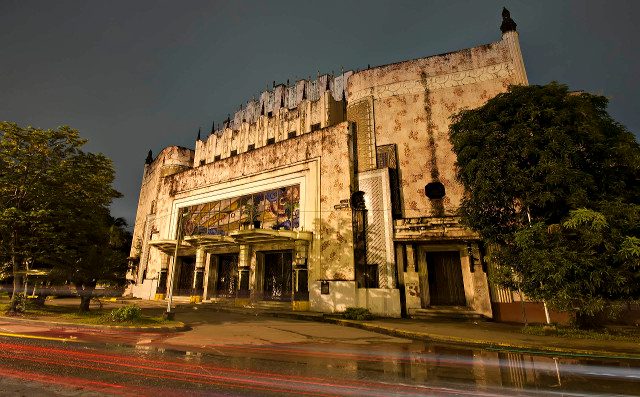SUMMARY
This is AI generated summarization, which may have errors. For context, always refer to the full article.

MANILA, Philippines – The National Commission on Culture and the Arts (NCCA) is one step closer to owning the Manila Metropolitan Theater, a decaying building that many heritage conservationists want restored to its former glory.
A Facebook post by Heritage Conservation Society (HCS) president Ivan Henares announced that the NCCA now has approval from the Department of Budget and Management (DBM) to buy the theater, commonly called the Met.
“I received fantastic news from National Museum Director Jeremy Barns. NCCA got DBM approval to buy the Metropolitan Theater today,” said Henares in a May 21 post.
Barns confirmed this to Rappler in a text message. He added that the approved funds total P270 million, matching the offer made by the Manila city government.
The NCCA and Manila, led by Mayor Joseph Estrada, are in a tug-of-war for what many have called the “forgotten National Cultural Treasure.”
The Manila city government has offered to buy the Met from its current owner, the Government Service Insurance System (GSIS).
Estrada has said he wants to restore the Met so it can house the Universidad de Manila’s Institute of Performing Arts.
But the NCCA said it would match the offer using its National Endowment Fund for Culture and the Arts. The DBM approval officially frees up the fund for the purchase.
According to the National Cultural Heritage Act, the NCCA has the “right of first refusal” on the sale of national cultural treasures.
This means that the agency has the right to intervene before the sale of a national cultural treasure to any entity is finalized. It can then match the offer made.
Estrada had earlier asked the NCCA to waive this right.
The NCCA has requested for more than P500 million to buy the Met and pay for its restoration, according to an Inquirer report.
New hope for heritage
A jubilant Henares said the NCCA’s exercise of its right of first refusal signals a “new era for heritage conservation in the Philippines.”
Barns said the NCCA, once it is given ownership of the theater, plans to restore it fully into a cultural center.
What might the Met look like when restored? Here’s a video:
It will be a “showcase for NCCA external programs, including performance, exhibitions, heritage conservation, etc,” he told Rappler.
He also gave assurances that the NCCA would work closely with culture and art organizations, education institutions and other parties, “including Manila City.”
Though more detailed plans are still in the works, the “restoration plans are ready,” he added.
Though the approval is a welcome development, nothing is final until the GSIS accepts NCCA’s offer. According to Barns, the ball is now in GSIS’ court.
Opened in 1931, the Manila Metropolitan Theater was designed by legendary Filipino architect Juan Arellano – the same name behind the iconic Post Office Building and Legislative Building (now National Mueum).
Once the crown jewel of Manila theaters, it housed performances of zarzuelas, bodabil (vaudeville), and operas. It was here where Filipinos would watch Philippine musical greats like Atang dela Rama perform.
Designed in the Art Deco style, it survived World War II but was soon neglected due to conflicts over ownership between GSIS and the Manila city government.
There have been many attempts to revive it. Will this latest one be a failure or a success? – Rappler.com
Add a comment
How does this make you feel?


There are no comments yet. Add your comment to start the conversation.